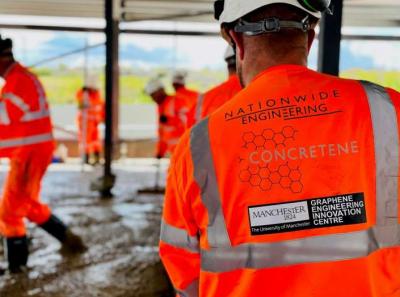Researchers report giant magnetoresistance of Dirac plasma in high-mobility graphene
Researchers from the University of Manchester and University of Lancaster have exposed high-quality graphene to magnetic fields at room temperature and measured its response.
"Over the last 10 years, electronic quality of graphene devices has improved dramatically, and everyone seems to focus on finding new phenomena at low, liquid-helium temperatures, ignoring what happens under ambient conditions," says materials scientist Alexey Berdyugin from the University of Manchester. "We decided to turn the heat up and unexpectedly a whole wealth of unexpected phenomena turned up."

